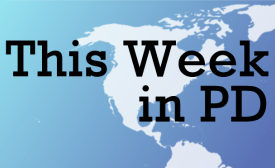social media
Dressed in a nun’s habit, with the crowd on its feet and a tattooed rap-star judge fighting back tears, Sister Cristina belts out a hip-shaking rendition of “No One,” by Alicia Keys, that brings down the house at auditions for Italy’s equivalent of The Voice. Her performance quickly goes viral on the Internet, topping 47 million views on YouTube. Now, gossip magazines have splashed her on their covers in her habit and featured her in articles.
The online ruckus over the planned Philippine Independence Day celebration on Orchard Road in Singapore is the latest ominous sign of rising xenophobia in the prosperous city state.
Last month, Russian President Vladimir Putin dismissed the internet as a CIA project. During a speech at a media forum in St. Petersburg, he said Russia would have to "fight for its interests" online. New laws passed in the last few days show just how serious he was.
Vietnam has arrested two democracy activists for posting articles critical of the government on the Internet, signalling a continued crackdown on dissent despite the early release of three dissidents last month.
Celebrities and world leaders are drawing attention to the plight of 300 Nigerian school girls kidnapped a month ago by Nigerian terrorists by using the social media campaign #BringBackOurGirls.
Even though Western music and movies are a major export to the Middle East, many people there support censoring these programs if they are deemed offensive. This is one of several findings in a new study on Middle Eastern media habits by Northwestern University in Qatar.
Turkish Prime Minister Recep Tayyip Erdogan rode around Google headquarters last spring in the company's self-driving car, tried on Google Glass eyewear and vowed to keep digitizing the economy in the country he has ruled since 2003.

Social media and new technology have spawned a new generation of digital diplomats. Meanwhile, governments try to defend against social media campaigns.







